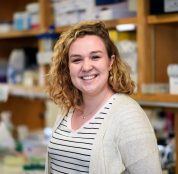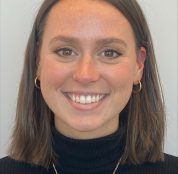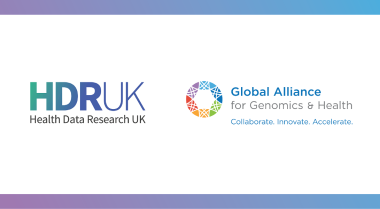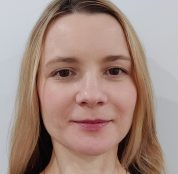
HDR UK Scientific Conference: Meet our Lightning Talk Speakers
8 November 2022
Our Lightning Talk session is back this year by popular demand. Six early career researchers will be presenting 4-minute talks on everything from using loyalty card data to understand self-care behaviours before ovarian cancer diagnosis, to analysing the impact of household overcrowding on COVID-19 diagnosis. We catch up with this year’s speakers for a sneak preview of their talks.
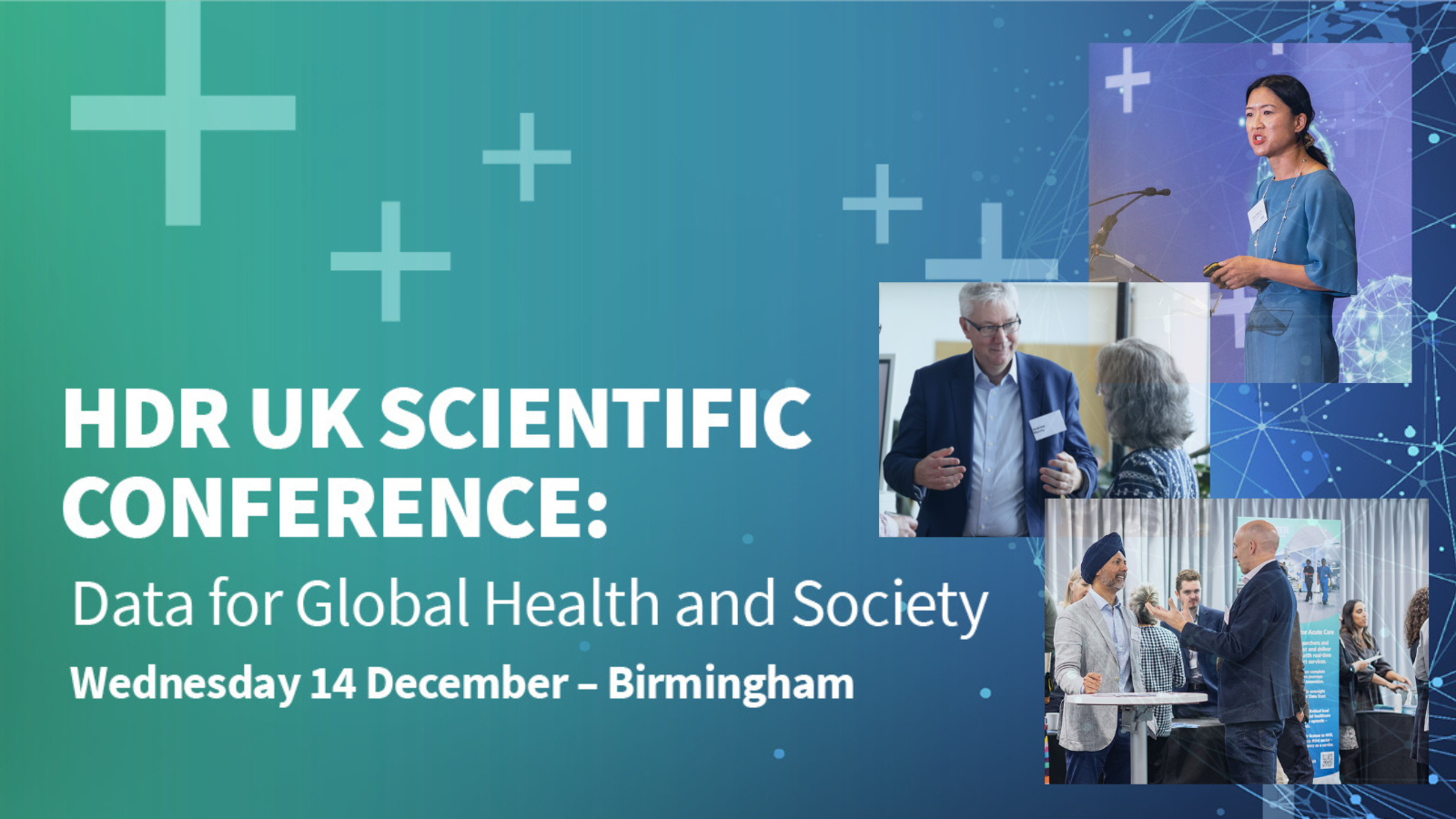
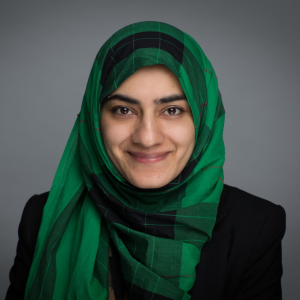 Sara Khalid, on ethnicity, equity, and AI
Sara Khalid, on ethnicity, equity, and AI
Senior Research Fellow in Biomedical Data Science and Health Informatics, University of Oxford
Winner: Best Lightning Talk, as voted for by attendees of HDR UK’s Scientific Conference.
I lead the Planetary Health Informatics Lab at the University of Oxford where we study global health gaps or inequity via big health data and artificial intelligence.
Inequity in health is a long-standing multi-faceted issue, as highlighted by the recent pandemic, where people from ethnically diverse backgrounds were disproportionately affected.
But we know inequity is not limited to the pandemic, it is a long-standing, multi-faceted issue. To improve health for all, it is essential to understand and improve data on ethnicity and the many other social determinants of equity. I find this area both interesting and challenging because when it comes to bias, data and models can both be a source of the problem, as well as a part of the solution.
An example is technology for predicting a person’s future health risks. This involves feeding routinely collected health information into a computer model to produce a health risk score for a patient, and that is used by doctors to decide patient care. If there is bias in the data or the model, the doctor can potentially make wrong decisions and patients can get the wrong care. It can mean some groups of patients might inappropriately be prioritised over others for booster vaccines, hospital beds, or life-saving treatment.
This research funded by HDR UK through the Data and Connectivity programme aims to improve existing technology for predicting personalised future risk of health conditions, particularly those affecting overlooked groups of patients. The underlying concept is: better data, better research, better care.
At the conference, I’m looking forward to sharing this research looking at ethnic diversity in UK healthcare systems at population-wide level, and discussing how better data can lead to better care for everyone.
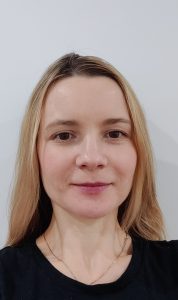 Marta Wilk on household overcrowding and COVID-19 diagnosis
Marta Wilk on household overcrowding and COVID-19 diagnosis
PhD student, Queen Mary University of London
I’m a third-year PhD student in the REAL Child Health team, which is part of the Wolfson Institute of Population Health at Queen Mary University of London. I study the characteristics of children who are overweight or obese in North East London and Wales.
I’m particularly interested in the influence that children’s households’ have on their weight – these are very important environments where children learn food habits and where household adults take care of their meals. I aim to provide evidence for household level interventions for maintaining a healthy weight in children.
The biggest complexity of my research is that the outcome – childhood weight and obesity – has many causes and the data I use for research can only provide information about some of them. There are very important problems related to poverty, access to care, and access to education which I cannot measure from the data, and which have a very big impact on people’s health.
During the pandemic our research team, like many others, focused on supporting the pandemic response. We knew the population of North East London had been hit very hard by COVID-19 and that many people live in overcrowded housing. We saw an opportunity to use the work I had done for my PhD to address whether people who lived in overcrowded housing were more likely to catch COVID-19, which is the work I’ll be presenting at the conference.
At the event, I’m very interested to hear from Mauricio Barretto in his talk about the relationship between intervention on poverty and health outcomes from the Brazilian cohort, as well as hearing about the personal healthcare experiences and opinions of patients and the public.
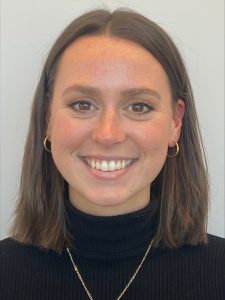 Hannah Whittaker on the impact of COVID-19 on people with chronic respiratory disease
Hannah Whittaker on the impact of COVID-19 on people with chronic respiratory disease
Research Associate in Epidemiology, Imperial College London
I am an epidemiologist with a background in biomedical sciences. I have been using electronic healthcare records for the past 5 years to better understand the management of people with Chronic Obstructive Pulmonary Disease (COPD), and really enjoy the challenge of using complex data to investigate important public health topics.
When the pandemic hit, I was eager to better understand the long-term impacts of COVID-19 on population health. I conducted a study investigating the burden of symptoms, diseases, and health care utilisation post-COVID-19 infection using NHS data.
As my background had focused on chronic respiratory diseases (such as COPD), I wanted to take this further to better understand whether people with chronic respiratory disease who were infected with COVID-19 were more likely to have post-COVID-19 complications, such as cardiovascular disease. I was lucky enough to be funded by a BHF/HDR UK grant to work on this project and with others across the CVD-COVID-UK/COVID-IMPACT Consortium.
I find data management an interesting aspect of my work, but it can be very challenging. The recording of data, or the lack of recording of data, in routinely collected healthcare records can create obstacles when interpreting results. However, understanding why this might be the case and overcoming these limitations can be rewarding.
At the conference, I am looking forward to engaging with like-minded individuals and learning about other researcher’s experiences using complex data, and hopefully finding new collaborators to work with in the future.
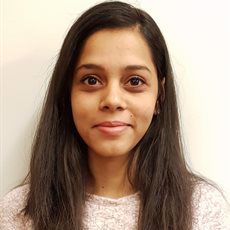 Anuradhaa Subramanian on the symptoms and risk factors for long COVID
Anuradhaa Subramanian on the symptoms and risk factors for long COVID
Research Fellow, University of Birmingham
I’m an epidemiologist within a multidisciplinary team, with experience using large datasets for research projects. In my lightning talk, I will briefly summarise the findings of a study on ‘symptoms and risk factors for long COVID’ conducted using 2.4 million anonymised patient records.
My research focuses on mindful use of routinely collected large data, including general practice and hospital data to general real-world evidence answering key questions.
For a long time, research within a trial setting has overlooked groups of people like pregnant women, older people, and people with multiple diseases. Real-world data offers limitless possibility for research that is inclusive, with long-term follow-up, to generate new evidence.
However, real world data collected for non-research purposes can also be chaotic and are inherently prone to biases. I’m particularly interested in using cutting-edge methodologies to understand and limit these biases.
In my work, I also enjoy collaborating and being able to contribute to a range of research areas focussing on various disease conditions. As someone without a medical background, all these collaborations have helped me understand the pathophysiology of various diseases and see the story of patients within the datasets I work on.
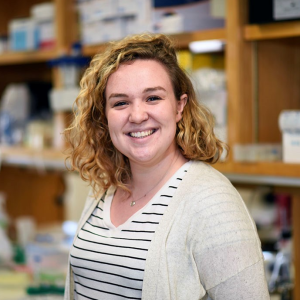 Hadley Sheppard on the development of secure systems to make data accessible and useable
Hadley Sheppard on the development of secure systems to make data accessible and useable
Scientific Content Creator, Lifebit Biotech Ltd
I grew up in the USA and completed my PhD at Baylor College of Medicine, in Houston Texas. The AACR-CRUK Transatlantic Fellowship brought me to the UK to complete my postdoc, and since then, I’ve transitioned to biotech and joined Lifebit.
At Lifebit, we are empowering Data Custodians to make their sensitive large-scale health data accessible and usable in a safe and secure manner. To maximise the potential of data-driven medical research, scientists and clinicians must be able to access large-scale clinical and genomic datasets.
Trusted Research Environments (TREs) are secure spaces for researchers to access sensitive data, but TREs at separate organisations currently cannot communicate with each other, which can prevent researchers from being able to use data held in different places.
The focus of my talk will be our DARE UK-funded collaboration with University of Cambridge, NIHR Cambridge BRC, Genomics England, Eastern AHSN and Cambridge University Health Partners. Together, our research sought to overcome the challenge of TRE communication through a process called ‘federation’ – building a virtual bridge to securely connect separate TREs.
I love being a part of an effort that is enabling scientific collaboration, as well as the accessibility and usability of extremely valuable data. It has been amazing to watch the field of genomics transform over the years, and further to see how much therapeutic insight lies within that data. Reducing barriers to accessing data is critical to enable therapeutic discovery, so it feels really rewarding to be a part of it.
I’m really looking forward to listening to all of the amazing talks at the conference, and making new connections within the scientific community and industry.
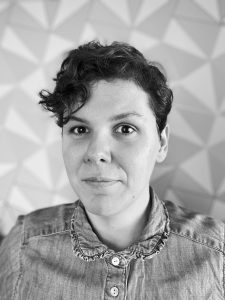 Yasemin Hirst, on using data from loyalty cards to understand self-care behaviours before ovarian cancer diagnosis
Yasemin Hirst, on using data from loyalty cards to understand self-care behaviours before ovarian cancer diagnosis
Research Fellow, Lancaster University
I’m a behavioural scientist and a chartered Health Psychologist currently based at the Lancaster Medical School. The research I’m presenting at the conference is on a Cancer Research UK-funded study called the “Cancer Loyalty Card study”. We investigated whether or not individuals who have been diagnosed with ovarian cancer are more likely to purchase over-the-counter medication before their diagnosis.
The study used data from past purchase histories collected by two UK-based high street retailers, with individual consent. Using an individual’s past purchase history in this way to develop a better understanding of their health-related behaviours has never been investigated before in an academic context.
Understanding self-care behaviours through an objective lens could tell us about the patterns people adopt and the potential associated cancer risks of this. In the future, this could lead to developing personalised or public health campaigns to facilitate earlier diagnosis.
As there are lots of examples of how commercial data can be misused, part of this research includes understanding the public acceptability for sharing such information collected by commercial organisations for health research, and improving communication methods to ensure people can make informed decisions about taking part in this exciting research.
I’m looking forward to learning more about the innovations in health data sciences, specifically different types of datasets that other people have used, how they communicated their methods with the public.

HDR UK Scientific Conference 2022: Data for Global Health and Society
Join us at this free event to celebrate the global health data revolution, and help build the knowledge, collaborations and public trust needed to enable data-driven discoveries which improve peoples’ lives. Wednesday 14 December 2022, Birmingham. 9:30-17:00.


